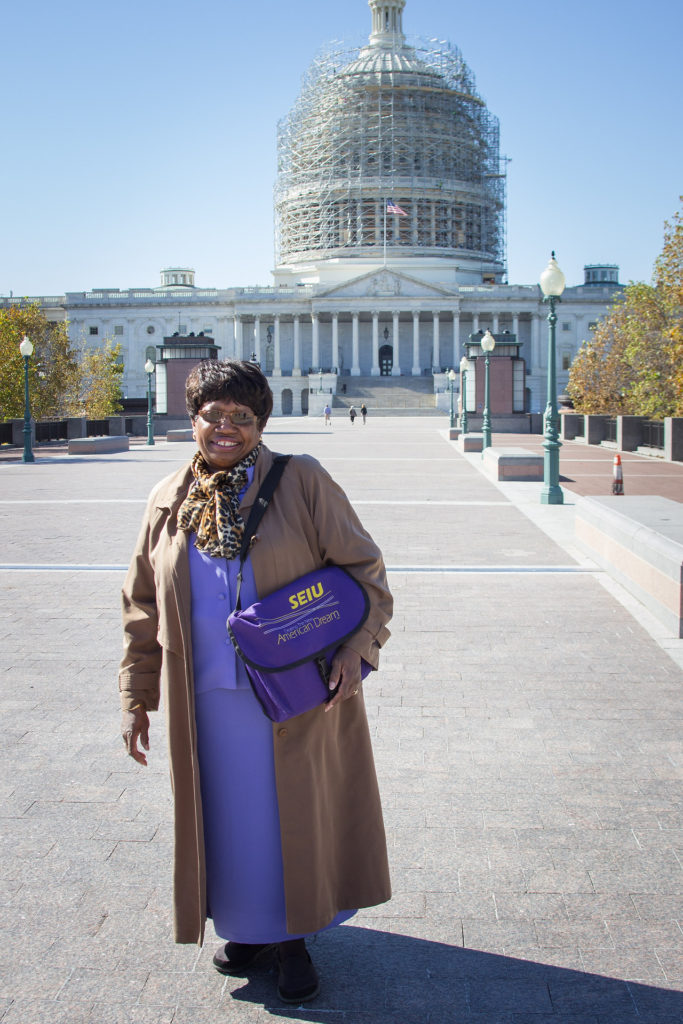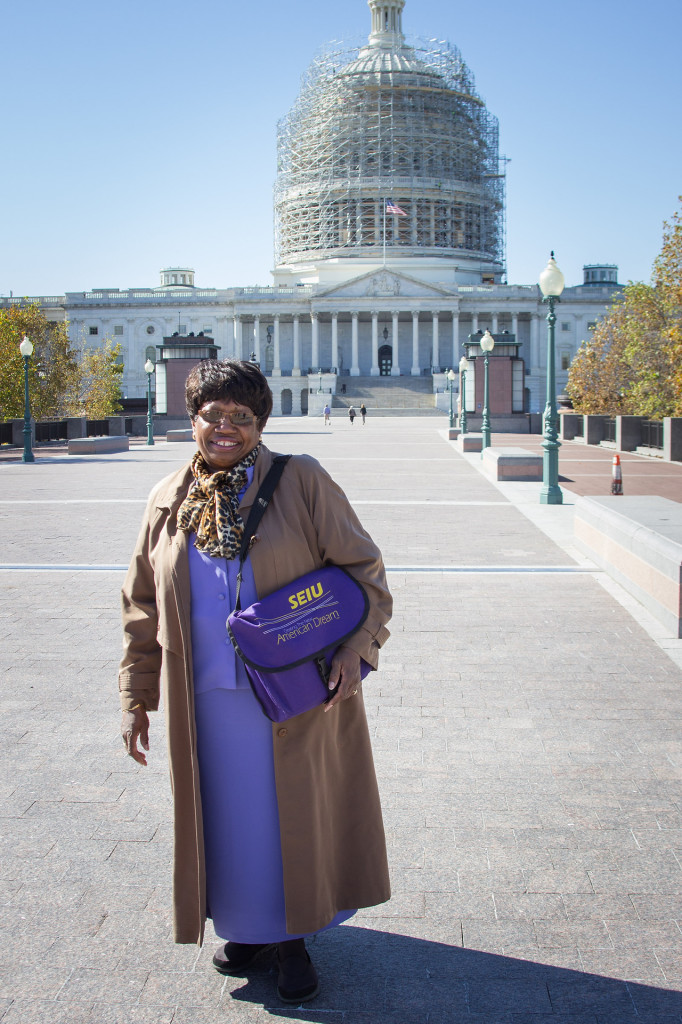Illinois Home Care Worker Patricia Evans Testifies in Washington, DC

 Our very own Illinois home care worker Patricia Evans traveled to Washington, D.C., on Monday, October 27, to testify at Congresswoman Jan Schakowsky’s Hill staff briefing on long-term services and supports (LTSS), entitled Long-Term Services and Supports: the Workforce Challenge.
Our very own Illinois home care worker Patricia Evans traveled to Washington, D.C., on Monday, October 27, to testify at Congresswoman Jan Schakowsky’s Hill staff briefing on long-term services and supports (LTSS), entitled Long-Term Services and Supports: the Workforce Challenge.
The briefing served as an in-depth review of the demographic challenges of the workforce needed in the future. Patricia was joined by Ai-jen Poo, Executive Director of National Domestic Workers Alliance, Gail McInnes of Paraprofessional Healthcare Institute, and Gail Hunt from National Alliance for Caregiving.
Ms. Evans provided moving testimony about her firsthand experience in the industry, and the challenges of low wages and lack of benefits for workers. Here’s an excerpt from her presentation:
Last week, I attended my job’s mandated quarterly training session. At the end, an administrator complemented us on the high quality of our work which has earned the company the reputation as #1 in the state. Recently a group from China, observing our operations, was extremely impressed with everything they saw. Yet despite these high accolades, our jobs continue to lack benefits which many companies consider basic. We have no sick days despite a company flu policy which advises employees to stay home when ill to avoid spreading the flu to our clients. We have a vacation plan in name only because the average weekly hours worked is twenty-four. The vacation qualification hours doesn’t fall that low until after four years of employment. It’s common for many workers to care for family members who have fewer than twenty hours of service a week so they never qualify for a vacation. Paid holidays also require qualifying hours. We have no retirement plan. Social Security was never meant to provide 100% of retirement support but one would never know that observing home care agency’s benefit packages. Not to mention, if your client goes to the doctor, you don’t get paid. Your client goes to the hospital for three weeks, you don’t get paid. Your client takes a trip, you don’t get paid. Your client forgets it’s your day to work and goes shopping, you don’t get paid. We don’t get paid even though we’ve made ourselves available to work yet couldn’t work through no fault of our own. This occurs in many jobs, but when you earn minimum wage your full paycheck is often inadequate to meet your basic bills.
You live in poverty. You work in poverty. You retire poor, hoping you will qualify for the services you have provided for so many years to others. Then, you die in poverty. The only ones who avoid this career path are those with employed spouses or other family members and friends who help them out financially. With my current low salary and part-time hours, I struggle to pay my monthly bills to keep a roof over my head and transportation under my feet. I don’t know how my co-workers with children get by. This is important work. We are people of worth. We make a valuable contribution to society, and it’s time that our paychecks reflected that.
Big congratulations to Patricia Evans on this exciting accomplishment! See more photos from the hearing here.
